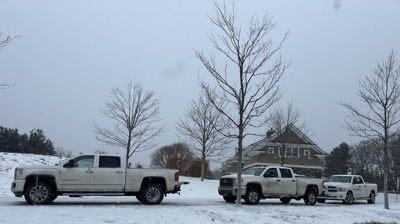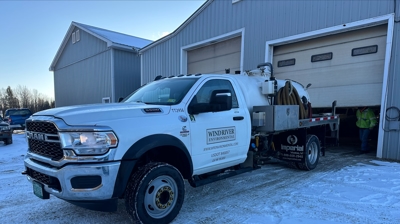Extreme weather conditions can wreak havoc on various aspects of our homes, and one area that often bears the brunt of these conditions is our plumbing system. From freezing temperatures to heavy snowfall, extreme weather can cause significant damage to your pipes if not properly addressed.
In this blog post, we will explore how extreme weather can affect your home's pipes and provide practical tips to help you safeguard your plumbing system.
Preventing Frozen Pipes
When winter arrives with its accompanying plummeting temperatures, protecting your home's plumbing system from freezing becomes a priority. Frozen pipes can lead to extensive damage and costly repairs.
One of the greatest problems with freezing in your plumbing system is burst pipes. As the water freezes in the pipe, it expands, causing damage to the pipes. The result of a burst pipe is flooding in your home, leading to extensive damage to your personal property and your home's structure.
Here's how you can prevent this from happening:
- Insulate your pipes: Start by insulating any pipes exposed to the cold, such as those in your basement, attic, or garage. Pipe insulation can be purchased from most home improvement stores and is relatively easy to install.
- Drain outdoor faucets: Disconnect garden hoses and drain water from outdoor faucets to prevent freezing.
- Keep interior doors open: Keeping doors open will allow the heat to circulate freely around the house, helping to keep your pipes warm.
- Let the faucets drip: If it's extremely cold outside, let your faucets drip slightly. The movement of the water can help to prevent freezing.
But how do you know when freezing temperatures are already causing problems for your plumbing system? Here are some signs to look out for:
- No water is coming out of the faucet: This could mean the water in the pipes has frozen.
- Strange smells coming from the faucet or drain: If the pipe is partially or completely blocked by ice, this can send odors back up the pipe into your home.
- Frost on the pipes: If your pipes are visible, such as those under sinks, you might see frost on the pipe's exterior.
- Unusual sounds when turning on the water: If you hear banging or clanking noises when you turn the water on, it may be a sign that your pipes are frozen.
Winter Weather and Clogged Pipes
Extreme winter weather can also lead to clogs in your plumbing system. Cold weather can increase the viscosity of certain substances, such as fats, oils, and grease, that may be present in your pipes. As these substances thicken, they can form blockages, leading to slow drainage or even a complete stoppage of your plumbing system. Additionally, a sudden drop in temperature can cause the ground to freeze, and if your system wasn't buried deep enough or you have suffered erosion of your topsoil, this drop in temperatures can lead to a backup in your main sewer line, and cause severe damage to your home's plumbing system.
Here are some precautions you can take to avoid clogged pipes during the winter:
- Dispose of fats, oils, and grease properly: Instead of pouring them down the drain, collect these substances in a container and throw them away in your regular garbage.
- Regularly run hot water through your pipes: This can help to keep any potential blockages from solidifying.
- Consider a sewer line heater: For extreme cases, a sewer line heater can help prevent freezing and subsequent clogging.
- Regularly inspect for clogs: Early detection can prevent minor clogs from becoming major problems. If you notice slow drainage, it may be a sign of a developing clog.
Reduced Water Pressure in Winter
Another issue you might face during the winter is reduced water pressure. Low water pressure can be more than an inconvenience; it can cause your water heater to work overtime and increase the risk of damage to your plumbing system.
Here's what can cause reduced water pressure during the winter and how to address it:
- Frozen or partially frozen pipes: As discussed in the previous section, when water freezes, it expands. This can cause your pipes to become wholly or partially blocked, reducing water pressure. To address this, you need to thaw your frozen pipes. Use a hairdryer, heating cable, or a portable space heater to thaw the pipe slowly. However, remember never to use an open flame to thaw your pipes, as it can be dangerous.
- Sediment build-up: Cold weather can increase the amount of sediment in your water supply, which can build up in your pipes and lead to blockages, thereby reducing water pressure. Regularly flushing your pipes can help to remove sediment build-up and restore normal water pressure. You can do this by turning off the water supply, opening all faucets and drains, and then turning the water supply back on to flush the system.
- Increased demand: In winter, many households use more hot water, which can lead to reduced water pressure. To balance the demand, try spreading out your water usage throughout the day to avoid overwhelming your system. You can also consider installing point-of-use tankless water heaters if you need consistent hot water in one part of your home.
If you are struggling with any of these issues and need help, reach out to the team at Wind River Environmental. We are here to help you with all your winter plumbing needs.


.2312211312550.jpg)



